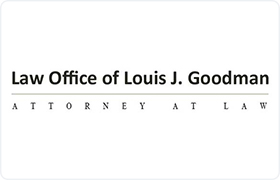Hayward Felony Lawyer, California
Sponsored Law Firm
-
 x
x

Click For More Info:
-
Louis J Goodman Attorney At Law
1290 B St Suite 307 Hayward, CA 94541» view mapCriminal Defense Law Tough, Experienced, and Professional
If you have been charged with a crime in Alameda County, California, contact The Law Offices of Louis J. Goodman.
510-582-9090
Robert Gary Cummings
✓ VERIFIED *Status is reviewed annually. For latest information visit hereThe Law Offices of Robert G. Cummings is devoted to the defense of individuals and entities charged with or facing criminal prosecution. Mr. Cummings... (more)
Maria G Guraiib
✓ VERIFIED *Status is reviewed annually. For latest information visit hereI was born and educated in Tucuman, Argentina. I graduated from the National University of Tucuman with a juris doctor and became a practicing attorne... (more)
Jo-Anna Marie Nieves
✓ VERIFIED *Status is reviewed annually. For latest information visit hereArmed with considerable experience working for the District Attorney in Sacramento, CA and her voluminous representation of large corporate clients in... (more)
Seth Morris
✓ VERIFIED *Status is reviewed annually. For latest information visit hereWhen the legal system fails you, you can’t leave yourself or your child at the mercy of a judge and 12 jurors. Seth Morris has saved his clients fro... (more)
Robert Cummings
The Law Offices of Robert G. Cummings is devoted to the defense of individuals and entities charged with or facing criminal prosecution. Mr. Cummings... (more)
Andrew L. Sullivant
Scott A. Sugarman
Jamil Francisco Karwash
FREE CONSULTATION
CONTACT Louis J. Goodman Hayward, CA
Louis J. Goodman Hayward, CA Practice AreasExpertise
Practice AreasExpertise




